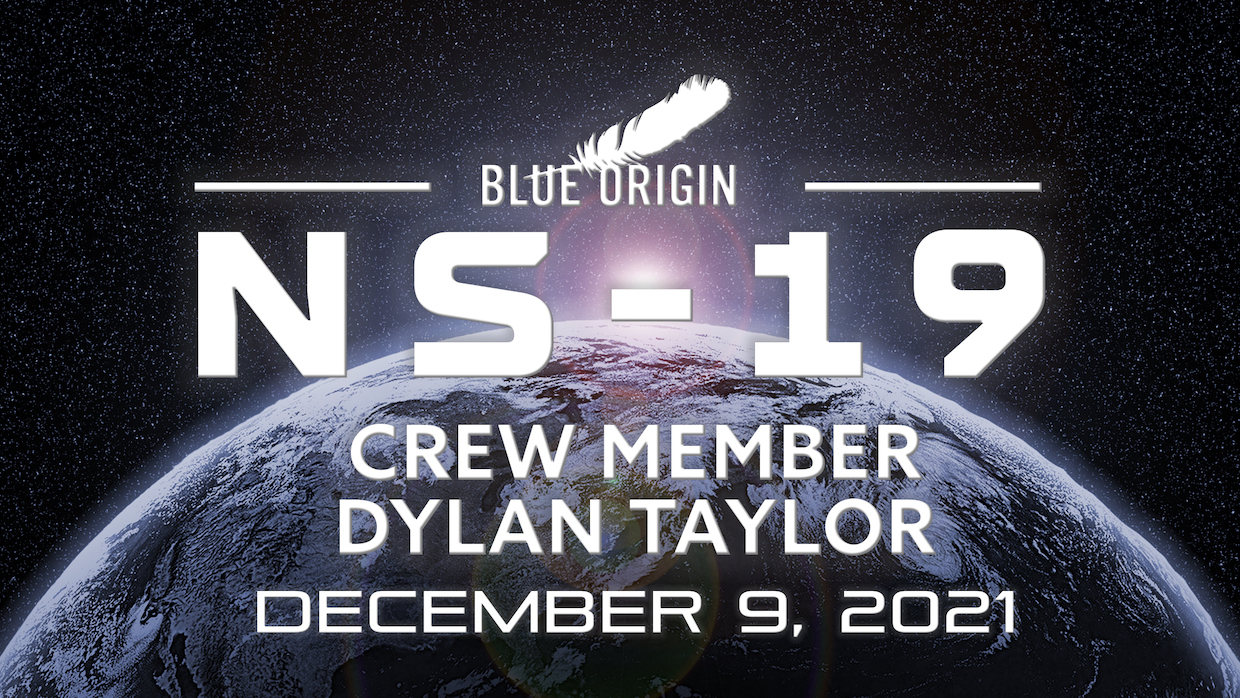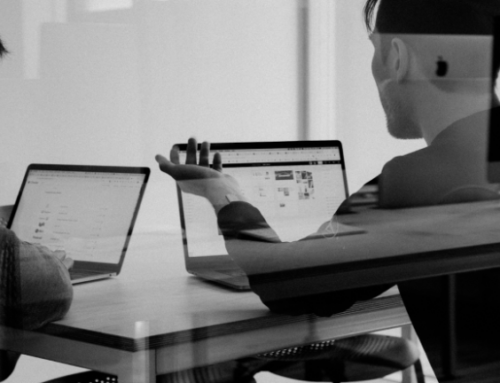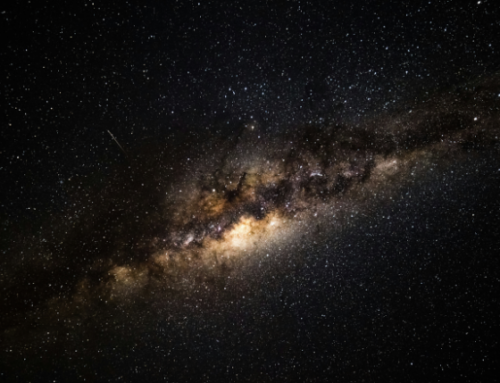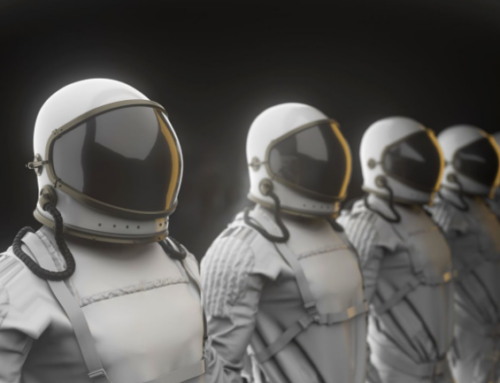On December 9th, 2021, myself and a crew of five other commercial astronauts, will launch to space aboard Blue Origin’s New Shepard rocket. It’s an experience that will mark another historic day as Blue Origin launches its third human-crewed rocket into space. Of course, it will also become a deeply personal milestone for me, and truly a dream come true.
Many of us, perhaps even most of us, have gazed up at the stars and felt the pull of the cosmos above. And it is likely that that pull has been ever present with humanity and probably even pre-dates the invention of language, which ironically, still seems limited in its ability to describe this “pull.” When I was a young boy growing up in rural Northern Idaho, I thought spaceflight was a possibility that only a handful of astronauts could achieve, and I could have never imagined that would someday include me.
To be one of just 600 humans to cross the Karman Line into space since the beginning of time? How could this even be possible? What an extraordinary privilege. But as many of us believe, with great privilege comes great responsibility. That is why I intend to buy one/give one. More on that later.
My first introduction to space came from watching Star Trek on TV with my dad in the 1970s, probably as early as the age of four. While watching the iconic crew explore space seemed like a fantasy, the seed of curiosity and wonder was stirred within me, to one day reach space myself. I was also attracted to the harmony of the StarTrek ecosystem. It was diverse, it was advanced, it was enlightened, and it was peaceful.
When later in life I entered the space industry, I knew that eventually citizens would be able to visit space. As the company I lead, Voyager Space and other private space companies developed innovative technologies, we collectively aimed to set the groundwork for an ecosystem that could realistically advance humans’ ability to travel further into space. We continue to seek ways to make space exploration sustainable and accessible for all of humankind.
I want to sincerely thank my Voyager Space colleagues, board members and advisors who have been so supportive of this effort. Thank you Matt Kuta, Jeffrey Manber, Eric Stallmer, William Shelton, Gabe Finke, Dr. Cheryl Shavers, Dr. Alan Stern, Marian Joh, Ellen Lord, Astronaut Nicole Stott, Astronaut Scott Parazynski, Astronaut Michael Lopez-Alegria, Astronaut Karen Nyberg, Paul Kaminski, Jim Bridenstine, Michael Mineiro, Karina Drees, Jon Goff, Dirk Hoke, Ryan Frederic, Max Vozoff and many, many others. And of course, thank you to Blue Origin.
The Promise of Space
Space is many things: it’s a technical challenge, a harsh environment, and certainly an investment opportunity. But first and foremost, I believe it is a tool for transformation. Traveling to space appears to universally foster a shift in human perspective that allows us to better understand the interconnectedness of the world. This is referred to as The Overview Effect, a term coined by legendary space philosopher and Rhodes Scholar, Frank White. It is often said the environmental movement was born from the Apollo program and the Earthrise photo. I truly believe this will become even more apparent as we start getting more and more people to space.
This was the impetus behind my founding of the global non-profit Space for Humanity in 2017. This line of thinking was born out of my participation in the Henry Crown Fellowship at the Aspen Institute, where you are challenged to create a venture that has the potential to change the world. The Fellowship changed my life and I am so grateful for all of my B&E brothers and sisters: LaToya Cantrell, Brady Hilliard, Ami Dror, Andrew Hayek, Carl Marci, Dan Hoffman, David Gilboa, Di-Ann Eisnor, Dolf van den Brink, Javier Olivan, Keli Lee, Kristen Grimm, Matt Wisdom, Michelle Marciniak, Navyn Salem, Niall Hay, Nicholas Sellers, Rebecca Taichman, Wasalu Jaco, and special thanks to Jim and Lester Crown, Tonya Hinch and Peter Reiling. Without them, the Fellowship would not exist, and the world would be much worse for it.
Buy One, Give One
As I wrap up Part 1 of this blog series, I want to announce a set of gifts that I would ask all other commercial astronauts to consider. I call it buy one, give one, a term I first heard coined by my friends Ami Dror and Navyn Salem. It is simple, donate to worthy causes here on Earth the equivalent of the ticket price for the spaceflight. Commercial Astronauts are predicted to spend several hundred million dollars in the next five years. The impact that cohort could have here on Earth if they all supported this initiative could be very substantial.
For me, there are four organizations I intend to support (in addition to Space for Humanity which I will continue to support annually).
–Astro Access, founded by George Whitesides and Anna Voelker, is dedicated to advancing disability inclusion in space exploration,
—Edesia Nutrition, founded by Navyn Salem to eradicate global malnutrition and hunger, learn more here,
–The Patti Grace Smith Fellowship supporting African Americans access to the Space industry founded by B. Alvin Drew, Jr., Khristian Jones, Tiffany Russell Lockett, and Will Pomerantz
–The Brooke Owens Fellowship, which supports women and non-binary individuals for internships within the leading aerospace companies in the industry, founded by Lori Garver, Will Pomerantz, Cassie Lee, and now joined by Diana Trujillo, Caroline Juang, Kayla Watson and the incomparable Emily Calandrelli.
In part 2, I will cover these organizations in more detail. We are T minus 16 days to launch, and I confess I am not sleeping well due to the excitement! Look for further updates in the coming days.
With love and gratitude,
Dylan






